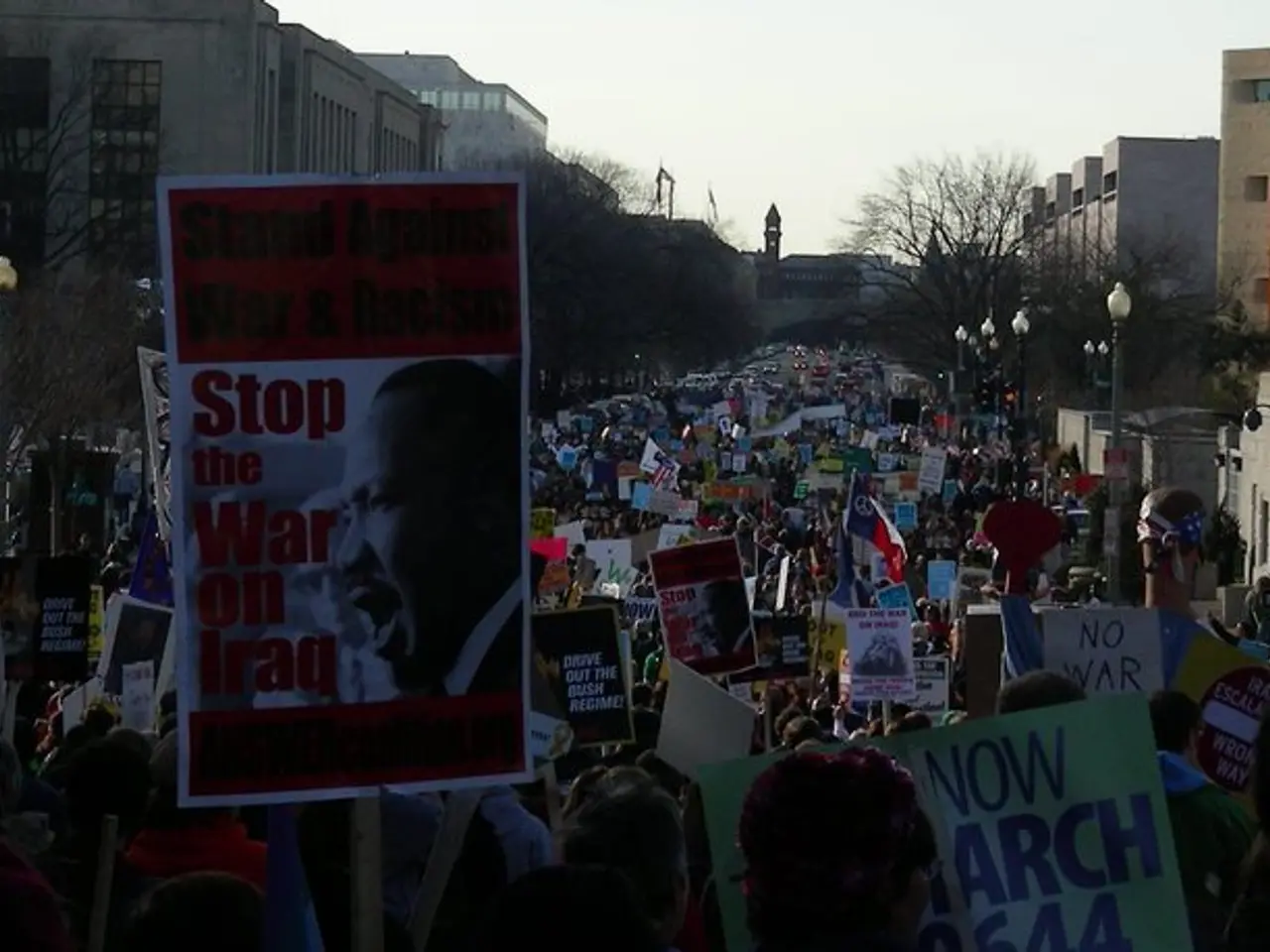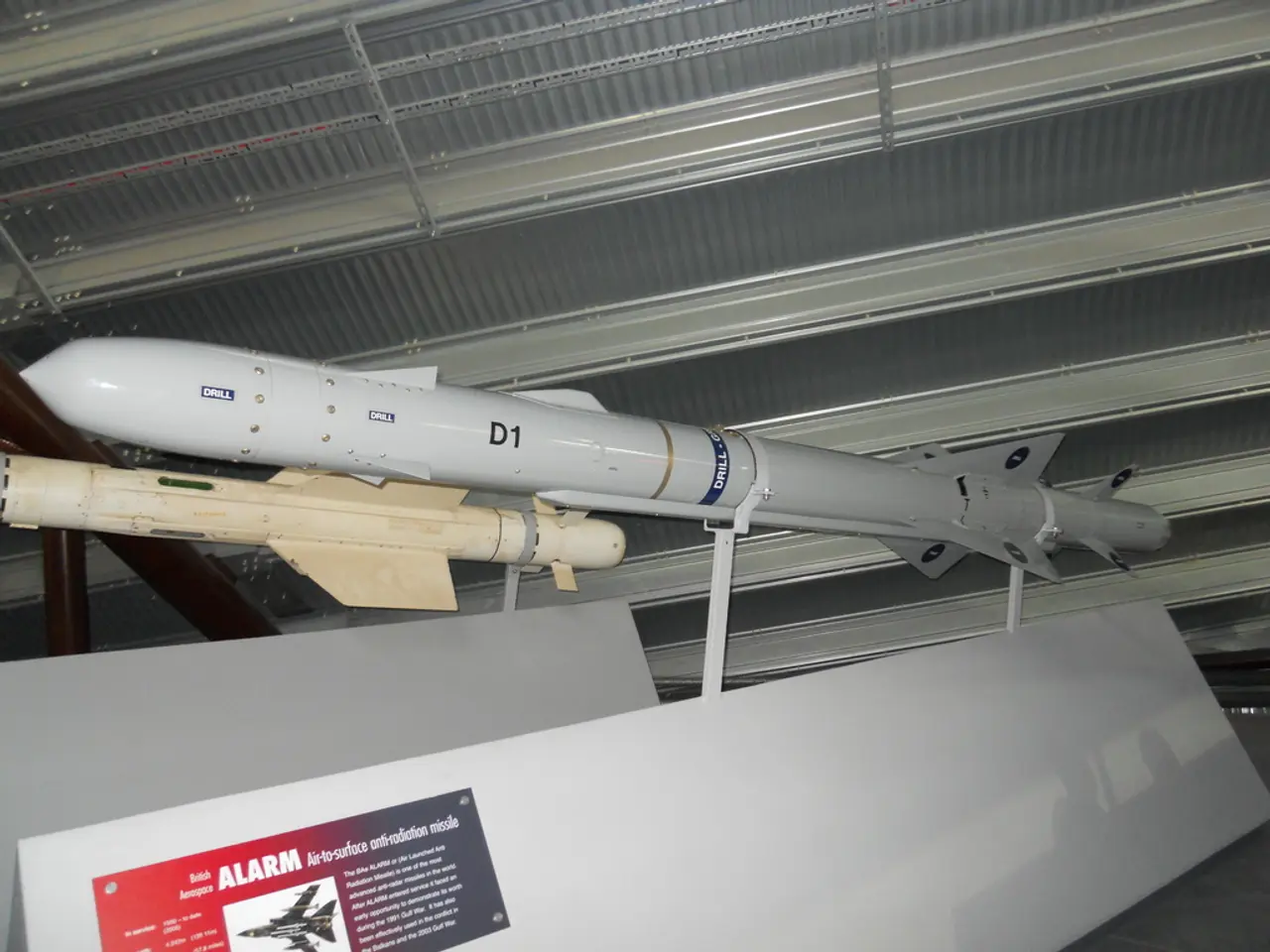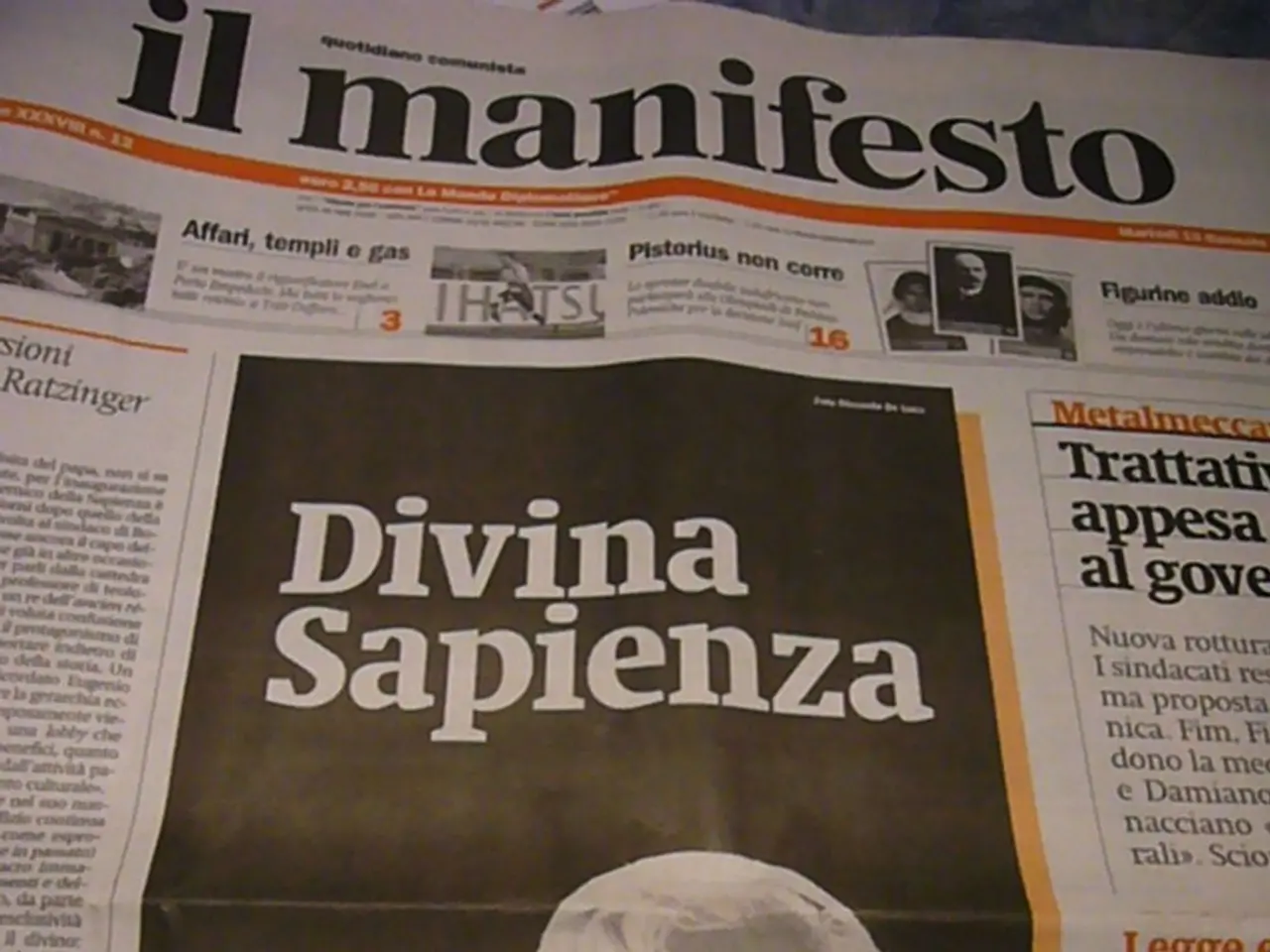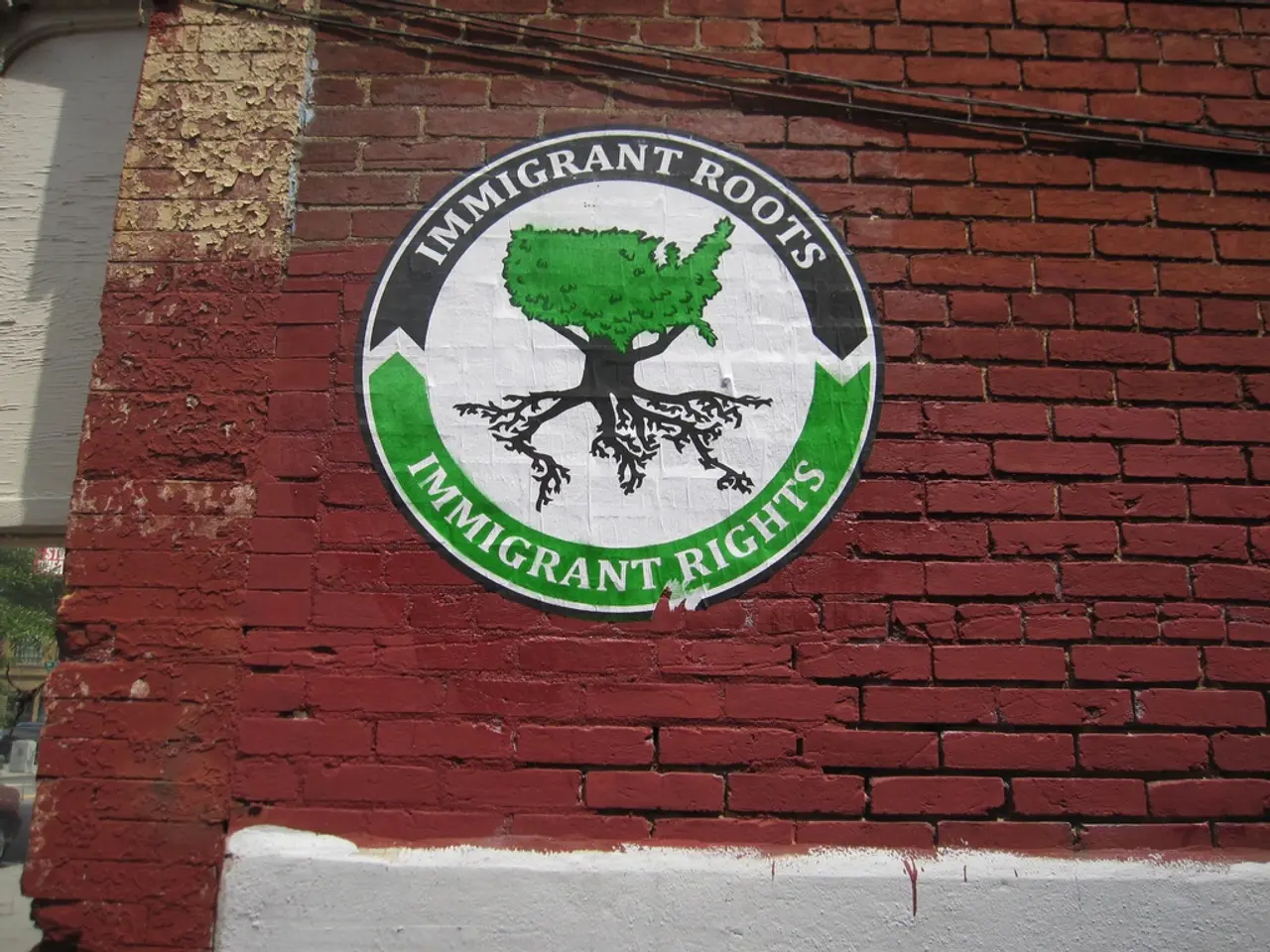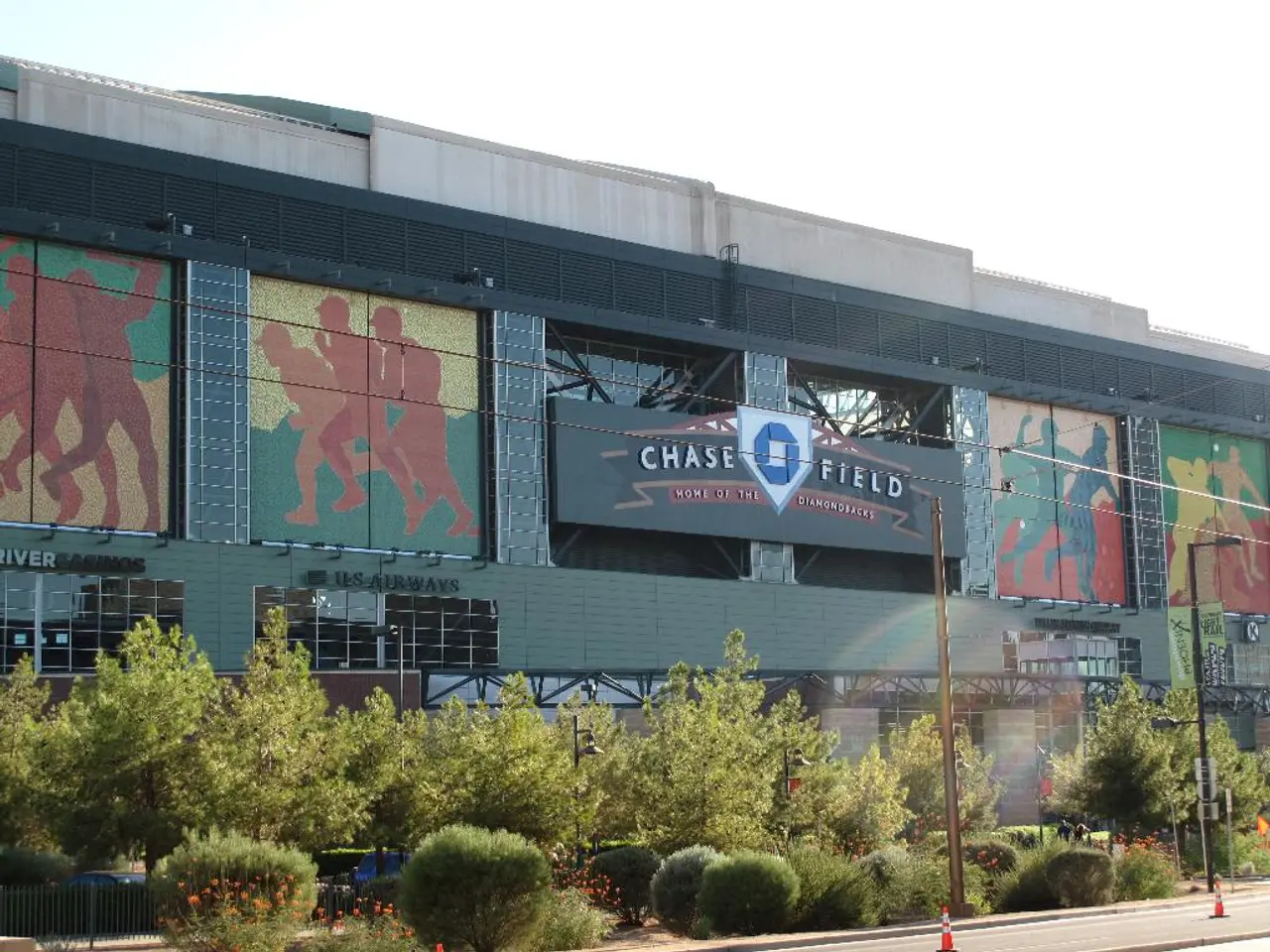Chaos in Belarus: A Country Faltering
In the heart of Eastern Europe, Belarus continues to grapple with political unrest following the disputed 2020 presidential election. The regime, led by President Alyaksandr Lukashenka, maintains a tight grip on power, with ongoing repression of dissent.
The election, widely condemned as neither free nor fair, saw Svetlana Tikhanovskaya, wife of political candidate Sergei Tikhanovsky, unexpectedly enter the race and become a popular protest leader. Despite Lukashenka's efforts to declare a crushing victory of 80%, Tikhanovskaya gained almost 11% in the official results, much more than any other officially-allowed rival.
The opposition, both in Belarus and in exile, continues to push for change. The Coordination Council, formed in Belarus, includes associates of all imprisoned opposition candidates and notable public figures, such as the Nobel Prize laureate Svetlana Aleksievich. However, the Council has not yet become a complete governing body.
The regime's resources are being rapidly exhausted, with political observers emphasising the high cost of maintaining special forces and riot police. The future of the regime depends on regional conflicts, Western sanctions, and internal resistance dynamics.
The brutal crackdown on protesters following the election has sparked widespread anger, leading to mass protests of up to 300,000 people on Minsk central square on August 16. Thousands were arrested, with reports of gang rapes and other forms of torture emerging. Lukashenka's brutality has been a defining factor in the ongoing protests, with the movement driven by three goals: to remove the dictator, free all political prisoners, and hold fair elections.
The Kremlin appears to be secretly trying to suppress the uprising in Belarus, but has not yet decided what to do with Lukashenko. The people's peaceful revolution is more frightening than the untrustworthy dictator for the Kremlin. The entire movement in Belarus is amorphous and does not exhibit any pro-European or national aspirations, which slightly mitigates the sharp reaction to the protests by Russia.
Despite the ongoing repression, the opposition remains resilient. Tikhanovskaya, now based in Lithuania, continues to represent the democratic movement abroad. The future of Belarus remains uncertain, but one thing is clear: the people are set for a long struggle.
References:
- RFE/RL
- The Guardian
- The New York Times
- Amnesty International
- Council on Foreign Relations
- The Belarusian opposition, both domestically and in exile, continues to strive for change in the face of political repression, trying to dismantle the authoritarian reign of President Alyaksandr Lukashenka.
- The military might of Russia and the delicate dance of politics between Belarus and the West leave the future of this restless nation fraught with uncertainty, as the ongoing war-and-conflicts around the world shape the security landscape.
- General news media outlets from RFE/RL, The Guardian, The New York Times, Amnesty International, and the Council on Foreign Relations insistently report on the abuse of power, human rights violations, and the tenacious spirit of the Belarusian people.
- The historical significance of the Belarusian struggle for freedom is underscored by the emergence of popular figures like Svetlana Tikhanovskaya and Svetlana Aleksievich, who carry the hopes and aspirations of the Belarusian people in their quest for a democratic future.
